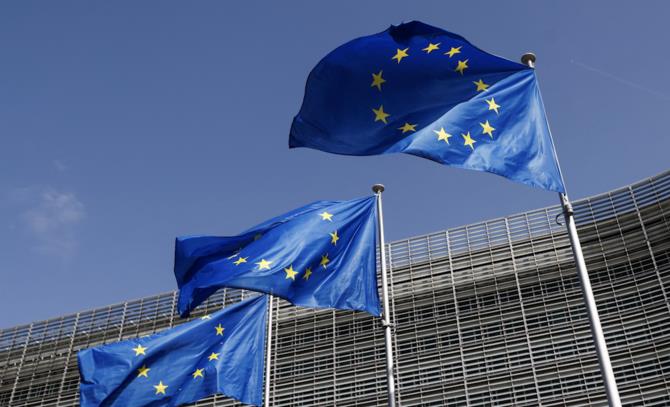
Denmark appears poised to join the EU’s common defence policy, becoming the last of the bloc’s members to sign up, as Russia’s invasion of Ukraine continues to reshape Europe’s security landscape.
Exit polls published as polling stations closed showed 69% of voters in favour of removing an opt-out to the EU’s common security and defence policy (CSDP). Thirty-one per cent of voters opposed the measure.
The referendum on Wednesday follows applications by Denmark’s previously non-aligned Nordic neighbours, Finland and Sweden, to join Nato last month.
Denmark, historically critical of the EU, secured exemptions from joining the CSDP and the euro in a 1993 referendum, but the country’s prime minister, Mette Frederiksen, said it was time to change tack.
“Unfortunately, we are looking forward to a time that will be even more unstable than what we are experiencing now,” Frederiksen said after casting her vote. “I believe it is the right thing for Europe, the right thing for Denmark, the right thing for our future.”
Frederiksen called the referendum barely two weeks after Russia’s invasion of Ukraine, after reaching an agreement with a majority of parties in the Danish parliament, and pledged to increase defence spending to 2% of GDP, in line with Nato membership requirements, by 2033.
“Nato will of course remain our most important tool, but the EU gives us another in securing our defence in the east,” the ruling Social Democrats’ defence spokesperson, Mogens Jensen, said. Eleven of Denmark’s 14 parties, representing more than three-quarters of seats in parliament, have urged voters to drop the opt-out.
“The world is changing, and not in a good way. We need to stand together and strengthen the cooperation that strengthens our security,” said Jakob Ellemann-Jensen, head of the opposition Liberal party.
Participation in the EU’s defence policy would allow Denmark, a founding Nato member, to take part in joint EU military operations, such as those in Somalia, Mali and Bosnia, and Danish officials to stay in the room when EU colleagues discuss defence issues.
It would be seen largely as a symbolic win in Brussels, experts said. “The political significance will outweigh the military contribution,” said Kristian Soby Kristensen, a senior researcher at Copenhagen University’s Centre for Military Studies.
Those opposed to abandoning the opt-out argue that the EU’s defence cooperation is hampered by excessive bureaucracy and inefficient decision-making, and that a joint European defence would come at the expense of Nato. Polls opened at 8am local time and a result is expected after 11pm on Wednesday.












